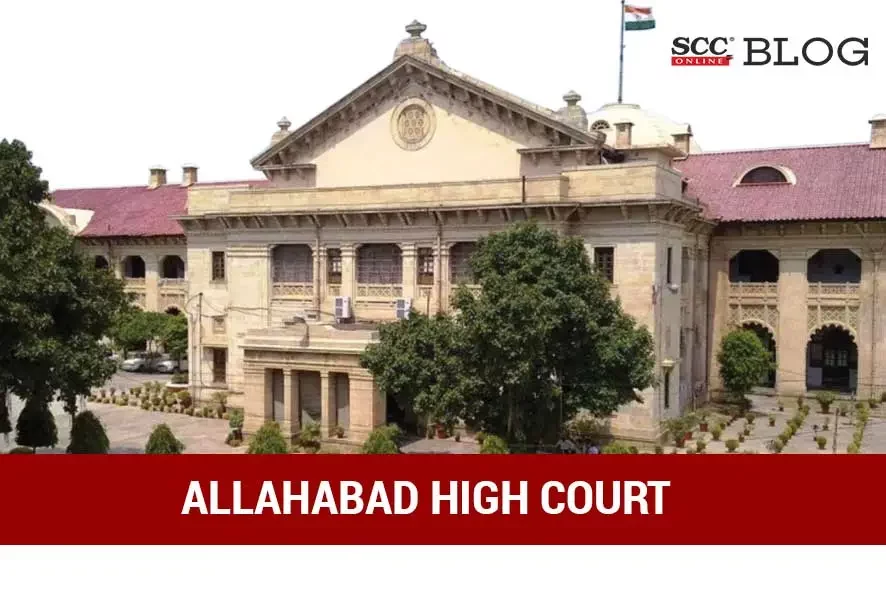Allahabad High Court: In an appeal against the order passed by Principal Judge, Family Court, on a divorce petition filed by the appellant/husband under Section 13 Hindu Marriage Act, 1955, the division bench of Suneet Kumar and Rajendra Kumar-IV*, JJ. has held that not allowing a spouse for a long time, to have sexual intercourse by his or her partner, without sufficient reason, itself amounts mental cruelty to such spouse. Thus, the Bench set aside the impugned order and granted a decree of divorce.
Facts:
The parties were married in 1979, according to Hindu rites and rituals. According to the husband, Gauna was performed after seven years of marriage. For some time, the behavior and conduct of the wife was good but suddenly she refused to live with him as wife. The husband felt that his marriage with her was merely an eyewash because immediately after the “Gauna” serious matrimonial problems developed between them which kept growing. According to the husband, though they lived under the same roof for some time, his wife voluntarily began to live separately at her parents’ house. The husband is serving in the police department; thus, he had gone to the place of his posting. After six months of marriage, he came back to his house taking leave and thought that there might have been some change in the behavior of his wife. Thus, he went to take her back, but she refused to accompany him and asked him for divorce.
On 04-07-1994, during a Panchayat in the village, parties arrived at an agreement of divorce. According to the husband, they have mutually divorced, and he had paid permanent alimony at Rs. 22,000/- to her. According to him, the wife had contracted a second marriage and two sons were born from their wedlock.
The husband had sought a decree of divorce based on mental cruelty, long desertion and divorce agreement dated 04-07-1994. Despite sufficient service through publication, the wife did not turn up in the court, therefore, the case was directed to proceed ex-parte. After examining the entire evidence, it did not find the case of husband proved and the case was ordered to be dismissed ex-parte with cost. Thus, the husband filed the present appeal.
Analysis:
The Court said that the husband sought divorce mainly on the ground that divorce has taken place in the community Panchayat, due to mental cruelty committed by the wife denying to co-habit and discharge the obligation of marital
The Court noted that while dismissing the case of husband, the court below observed that papers filed by him are photocopies, thus they are not admissible in evidence. The court below also observed in the impugned judgment that there is no evidence on the file showing that the wife has contracted a second marriage. Further, the Court said that it is evident from the record that for a long time, the parties to the marriage have been living separately; and as per to the husband, wife had no respect for marital bond and denied discharging obligation of marital liability. There has been a complete breakdown of their marriage.
The Court said that the court below has adopted a hyper technical approach and passed the order of dismissal of the husband’s case. There is nothing on record to controvert the evidence of husband.
Further, the Court said that not allowing a spouse for a long time, to have sexual intercourse by his or her partner, without sufficient reason, itself amounts mental cruelty to such spouse. It also took note of Samar Ghosh v. Jaya Ghosh, (2007) 4 SCC 511, wherein the Court enumerated some of the illustrations of mental cruelty.
The Bench said that since there is no acceptable view in which a spouse can be compelled to resume life with the consort, nothing is given by trying to keep the parties tied forever to a marriage than that has ceased to in fact. Thus, the Court set aside the impugned order of the Family Court and allowed the divorce petition filed by the husband, granting decree of divorce.
[Ravindra Pratap Yadav v Asha Devi, 2023 SCC OnLine All 183, Order dated 16-05-2023]
*Judgment by: Justice Rajendra Kumar-IV
Advocates who appeared in this case :
Counsel for Appellant: Advocate M. Islam, Advocate Ahmad Saeed, Advocate Azim Ahmad Kazmi.






